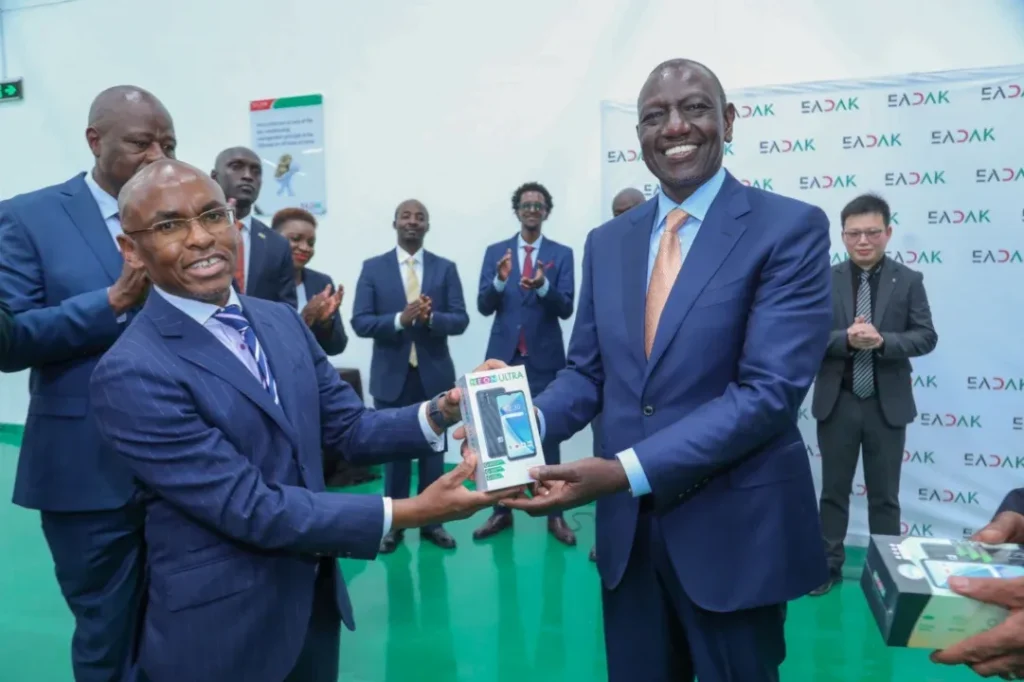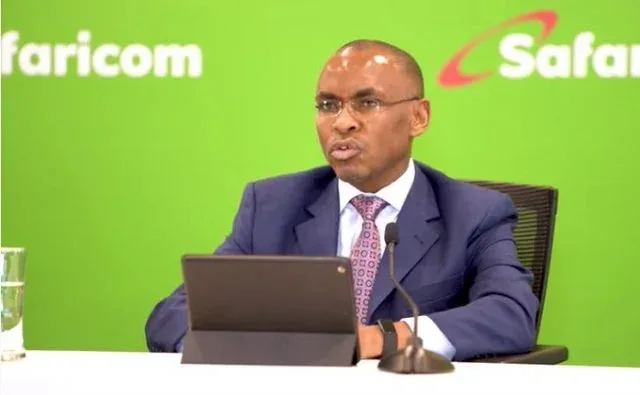As Safaricom celebrates its 25th anniversary, CEO Peter Ndegwa took us through the memory lane. From starting off as a subsidiary of Telkom Kenya to becoming the country’s largest and most valuable enterprise.
Before joining Safaricom, Ndegwa spent 15 years in the food and drinks industry, holding senior roles at Diageo and overseeing iconic brands such as Guinness. Since he took charge some five years ago, the company has grown in leaps and bounds.
This year, the company surpassed US$3 billion in revenue, delivered US$1.2 billion in operating profit, and celebrated passing 50 million customers in Kenya. With Safaricom’s mobile network covering 95% of the population and 36 million monthly users on its M-Pesa mobile money platform.
Despite this success Ndegwa still believes that there is an opportunity for growth. In the Kenyan market, only about half of customers own 4G or 5G devices with affordability being the biggest issue.
As a response to this, the telco started manufacturing the Neon brand of smartphones locally through East African Device Assembly Kenya (EADAK). EADAK is a joint venture with Jamii Telecommunications, Shenzhen TeleOne Technology, and the Industrial Technology Trading Company.

According to Ndegwa, 4G uptake is rising by 20-30% annually, with 23 million 4G devices now active on the network, out of 50 million. “Mobile is not declining yet – we’re even still growing in voice. There’s still more opportunity to grow – we’ve reduced price and we’re creating more affordability,” he said.
The telco also sees potential in broadband. The company currently connects fewer than half a million premises, with around 2 million more to reach by fibre or satellite. It has already deployed 18,300km of optic fibre.
Safaricom is also betting big on Ethiopia where they acquired a mobile license in 2021. Since then, they have acquired 10 Million customers and 3,000 mobile sites. This is big considering the telco took 8 years to reach this numbers in the Kenyan market.
However, the Ethiopian subsidiary has been making losses in its early years. Ndegwa attributed this to two main factors: heavy start-up capex and Ethiopia’s turbulent currency reform, which halved the value of the birr in 2024.
Despite this, Safaricom has pledged to shareholders it will break even in EBIT by 2027. Ndegwa expressed confidence in this target as Ethiopia stabilises and the government levels the playing field with state-owned Ethio Telecom, including offering tax breaks on equipment imports.
At entry, Ethiopia’s mobile penetration was around 50%, with only 60 million active customers. “There’s still a lot of headroom to grow,” he said. Safaricom is targeting 15 million subscribers by the end of the year, with ambitions to reach nearly 50 million within a decade.
Ndegwa was bullish, pointing to the strength of the Kenyan business in supporting expansion. EBIT in Kenya rose 13% year-on-year to KES158 billion (US$1.2 billion). Safaricom has so far invested US$2.5 billion into Ethiopia for licensing and loans, most of which has already been repaid. “The group generates a lot of cash,” Ndegwa noted.
“When our Ethiopian operation becomes a growth driver, we expect double-digit growth in both top and bottom line, because Ethiopia has the scale to deliver over time,” he said.
Looking ahead, Safaricom Kenya is expected to remain as the group’s main business. This is despite a push to breakup some of its core units, however, Ndegwa dismissed the idea, saying there is no visible benefit in such a drastic move.
Ndegwa credits Safaricom’s success to its mission of improving everyday life for Africans. “The financial benefits we’ve gained came from our purpose. We started with purpose, then customer focus, and then pushed innovation. We are doing the right things, driven by our desire to create impact,” he concluded.

